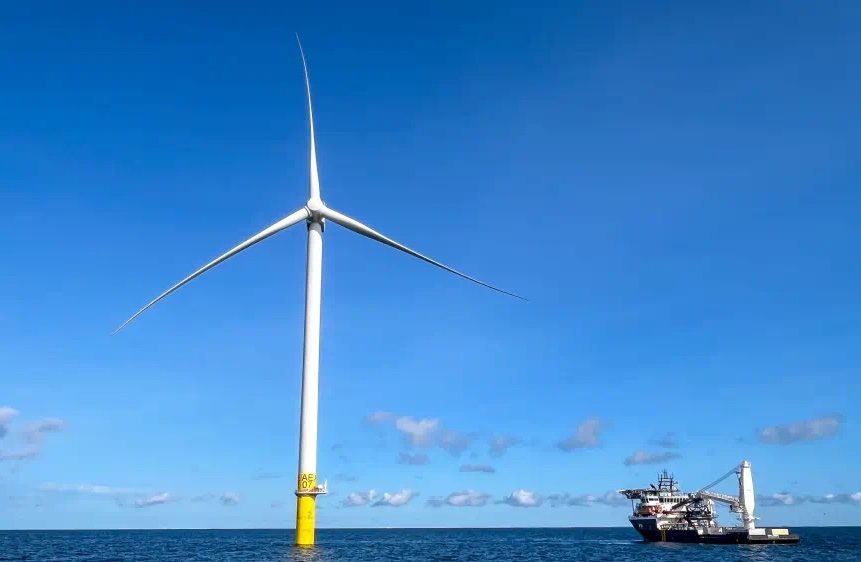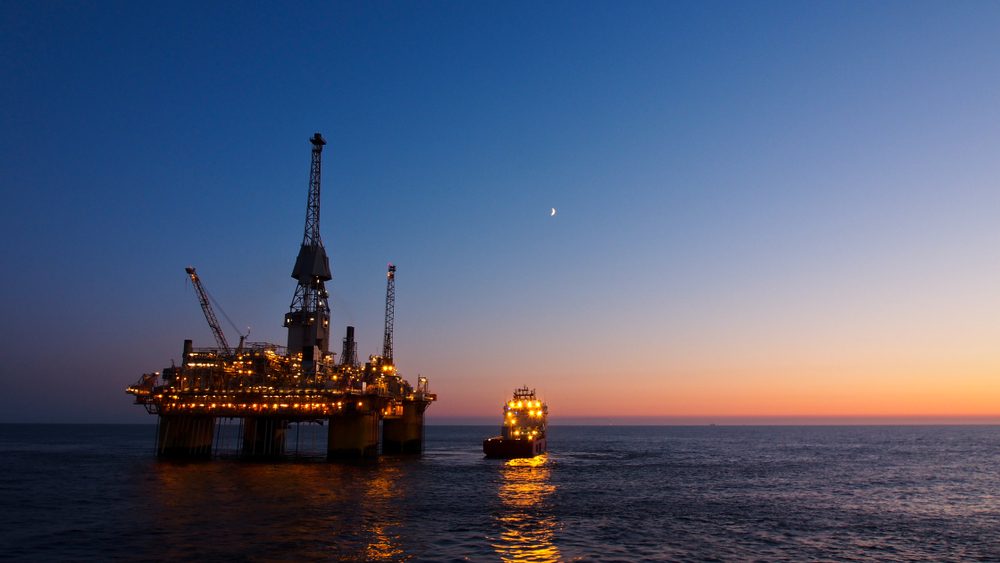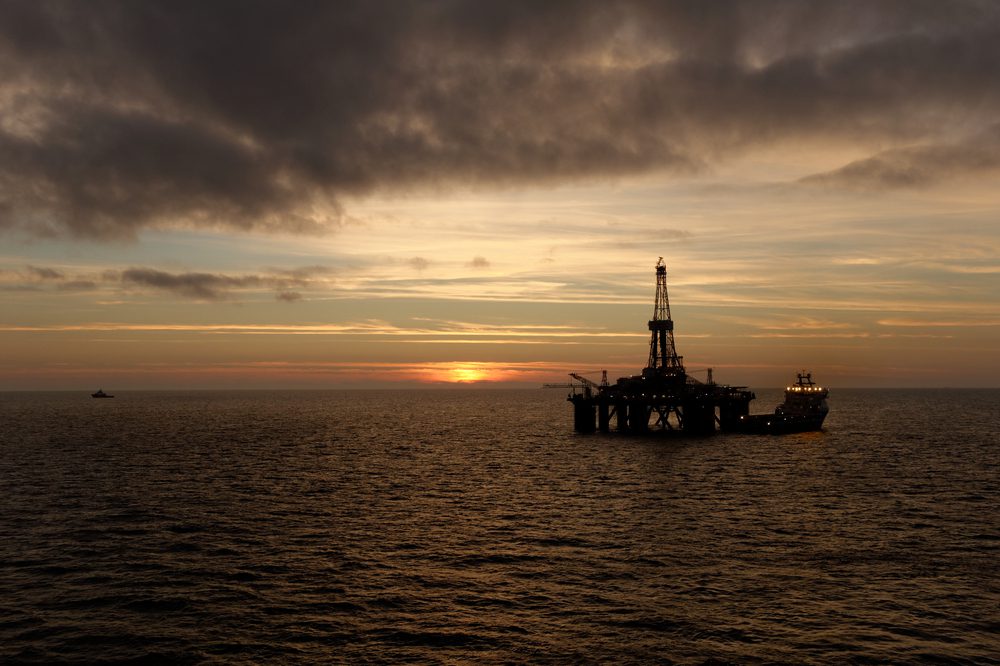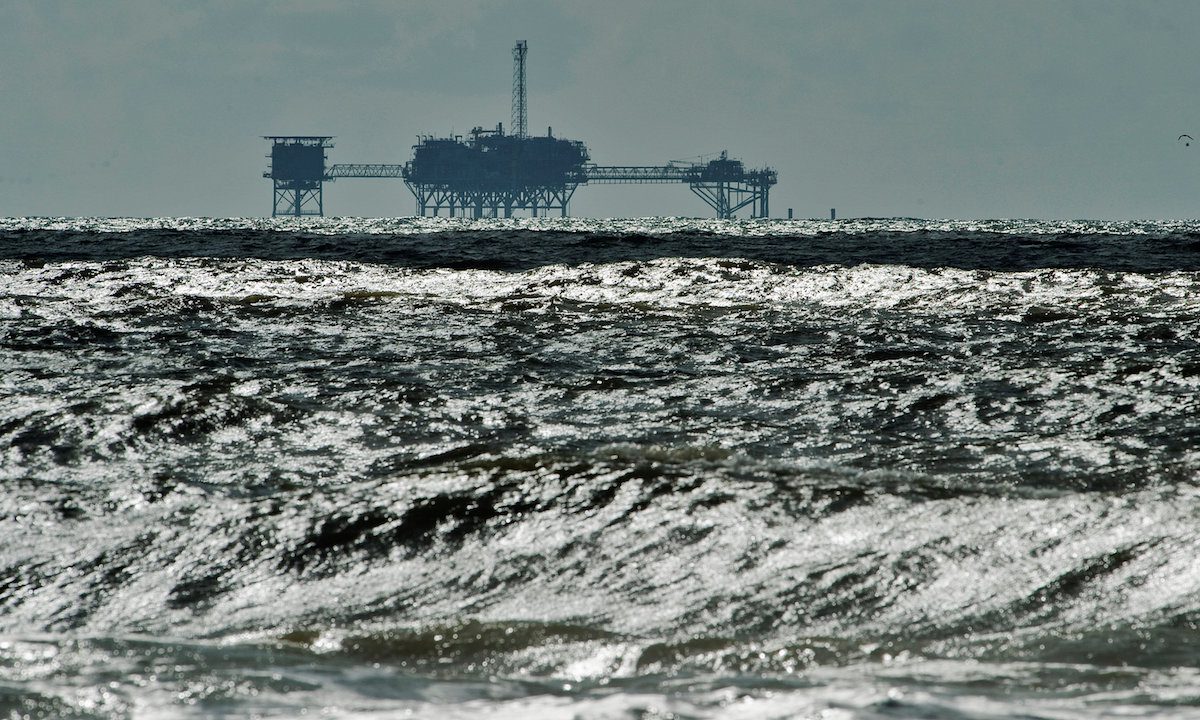By William Mathis, Mark Chediak and Ethan M Steinberg
Aug 14, 2025 (Bloomberg) —Orsted A/S’s debt was downgraded by S&P Global Ratings to the lowest tier of investment grade, surprising some analysts days after the Danish wind turbine maker announced a $9 billion rights offering to shore up its finances.
S&P cited Orsted’s “high-risk strategy” as the company struggles to complete wind farms on time and sell stakes in key projects — especially in the US where President Donald Trump is opposed to offshore wind. Orsted’s stock has plunged by more than a third this week, slicing more than $6.5 billion off its market value, while the rights issue has sparked a political backlash for the Danish government after it committed to put up half of the funds.
The Danish company has struggled in the US for years, where it sought to replicate its success of building offshore wind farms in Europe. Supply chain issues and increasing costs forced the company to cancel two major projects there in recent years, but its key executives remained committed. That decision has come to haunt them as the company has been unable to sell a stake in a major offshore wind farm under construction due to investors’ wariness over Trump’s policies to stifle the industry.
The firm’s long-term issuer credit rating was dropped one notch to BBB-, just one step above junk, S&P said in a statement on Thursday. It cited business challenges including the Danish company’s inability to carry out project refinancing and divest 50% of its US-based Sunrise wind project.
“The company’s more aggressive growth strategy, which it embarked on in 2021 has led to several challenges, including writedowns and strategic revisions, which are less prevalent among its peers that have had more nuanced strategy revisions,” according to the S&P statement.
S&P also noted that it had revised its view of the firm’s management and governance as “moderately negative” because of the credit impact of its “high-risk strategy that, to some extent, current management inherited.”
The downgrade “can only be characterized as a clearly negative surprise,” Danske Bank Chief Credit Analyst Jakob Magnussen wrote in a note. “We had expected that S&P would stay at ‘BBB’ and possibly even assign a positive outlook.”
Moody’s, meanwhile, affirmed Orsted’s long-term rating at Baa2 on Thursday.
Shares in the utility were up 1.6% early afternoon in Copenhagen, but are down by a record 33% this week. The company’s bond prices slipped marginally after the S&P downgrade.
“These expected updates do not impact our business plan,” said Trond Westlie, Orsted’s chief financial officer. “We’re comfortable with our credit metrics and believe they are in a good place commensurate with solid investment grade rating.”
All the firm’s current offshore wind projects, totaling 8.1 gigawatts, are progressing according to plan, Westlie said in an emailed comment.
Orsted said earlier this week that it planned to raise as much as 60 billion Danish kroner ($9.4 billion) in a stock sale to steady its finances.
The Danish state owns 50.1% of the shares in Orsted and the government is facing a political backlash over its decision to back the capital raise.
Since coming into office, Trump has halted permitting for new offshore wind developments, withdrawn millions of acres of ocean for development, and hastened the end of renewable energy tax incentives.
For Orsted, the moves by the Trump Administration made it impossible to sell down a stake in Sunrise Wind that’s under construction off the coast of New York, leaving a hole in its funding plans. The ability to sell parts of its projects is crucial to Orsted’s business model and that risk was key to S&P’s decision.
“The farm-down strategy has been a key pillar of Orsted’s business strategy, but this business model now pertains higher risk,” S&P said. “Previously we viewed Orsted’s track record on execution as predictable. However, the cancellation of the disposals of Sunrise Wind severely and directly hinders credit metric performance.”
Lower credit ratings can translate to higher borrowing costs for a company. Moody’s Ratings and Fitch Ratings both still rate Orsted debt two notches above junk. Typically, two of the three major ratings firms would need to designate a company as non-investment grade for investors to consider it to be so.
© 2025 Bloomberg L.P.

 Join The Club
Join The Club











